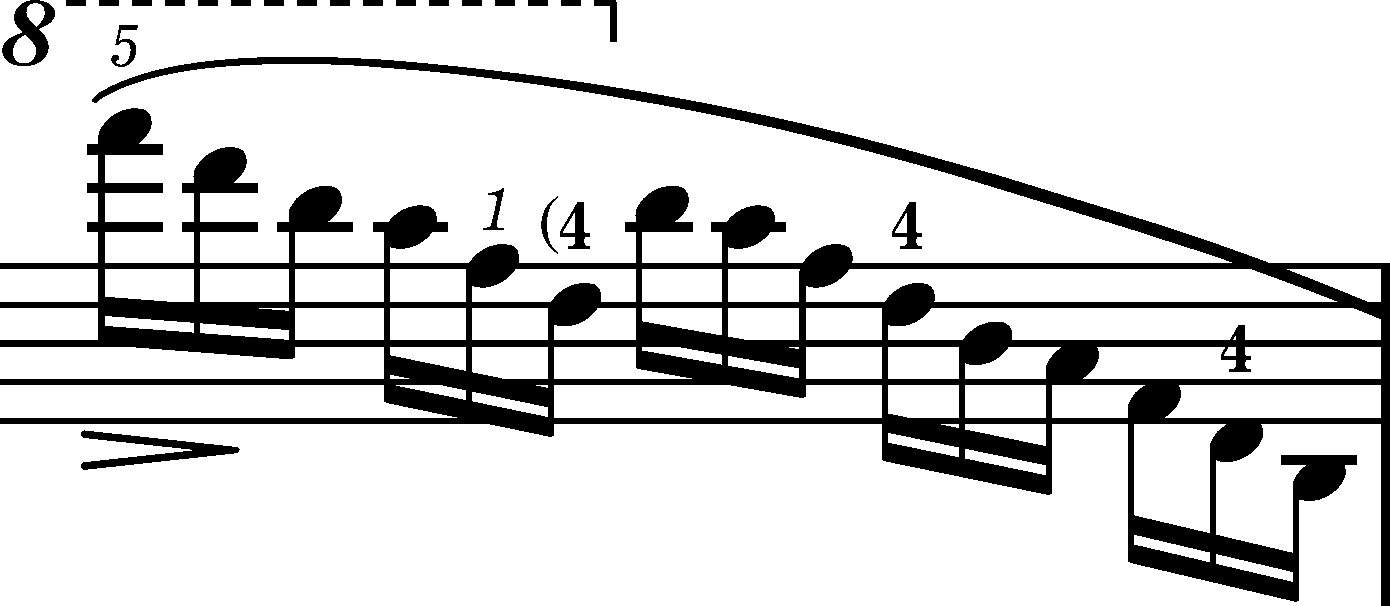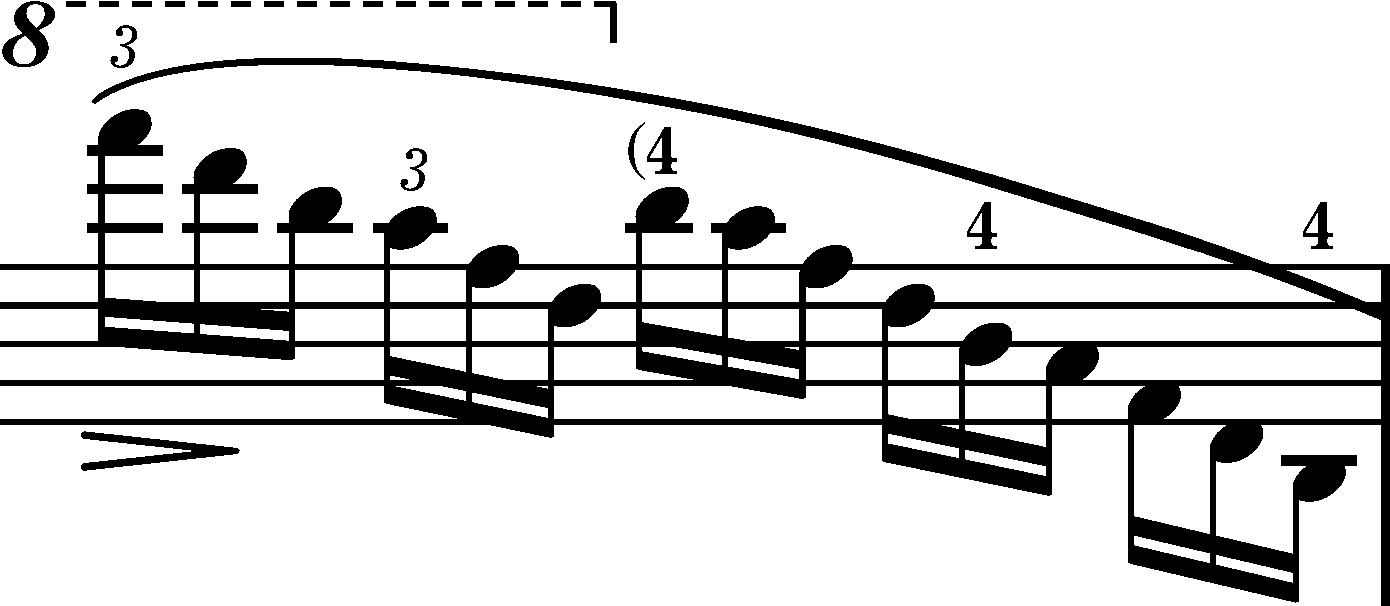




|
Fingering written into FES |

|
Completed fingering from FES |

|
Fingering written into FESf |

|
Fingering written into FEO, possible interpretation |

|
Fingering written into FEO, different interpretation |

|
Fingering in EE |

|
In all three pupil's copies, there are annotations with fingering that may come from Chopin. The digits in FES and FESf are written in a legible manner and they define two different, convenient fingerings of this passage. In the main text, we tend to the fingering of FES, since the relationship of this copy with Chopin is unquestionable (we add one digit due to the adopted rule – cf. General Editorial Principles, p. 17). In turn, the fingering written in FEO is problematic. It is unclear which digits were written here – the first two may be safely considered '4's, but further annotations actually look like pairs of '1's. Since such an interpretation does not offer any reasonable arrangement of fingers and hands, we assume that they are also illegibly written '4's. However, it still does not yield a more or less natural fingering, since the first two '4's are written over d3 and d2, and the next two – rather under b and B. In this situation, assuming possible inaccuracies or mistakes of the person who wrote it, we consider two interpretations to be possible – one with 4 digits on d notes and the second on b. The first results in the following fingering:
 .
.
The second, thanks to a common digit, combines with the fingering of FESf, so they can be considered different notations of the same fingering. However, it cannot be excluded that the fingering of FEO was written only in a place in which a pupil, using originally different fingering, encountered a problem – one can assume that the first two triplets were performed using a 321 321 fingering, which, together with the then written fingering, results in a very convenient combination:

The fingering in EE is inauthentic and it comes from the editor.
category imprint: Differences between sources
issues: Annotations in teaching copies, EE revisions, Differences in fingering, Annotations in FES, Annotations in FEO, Annotations in FESf
notation: Fingering
Back to note